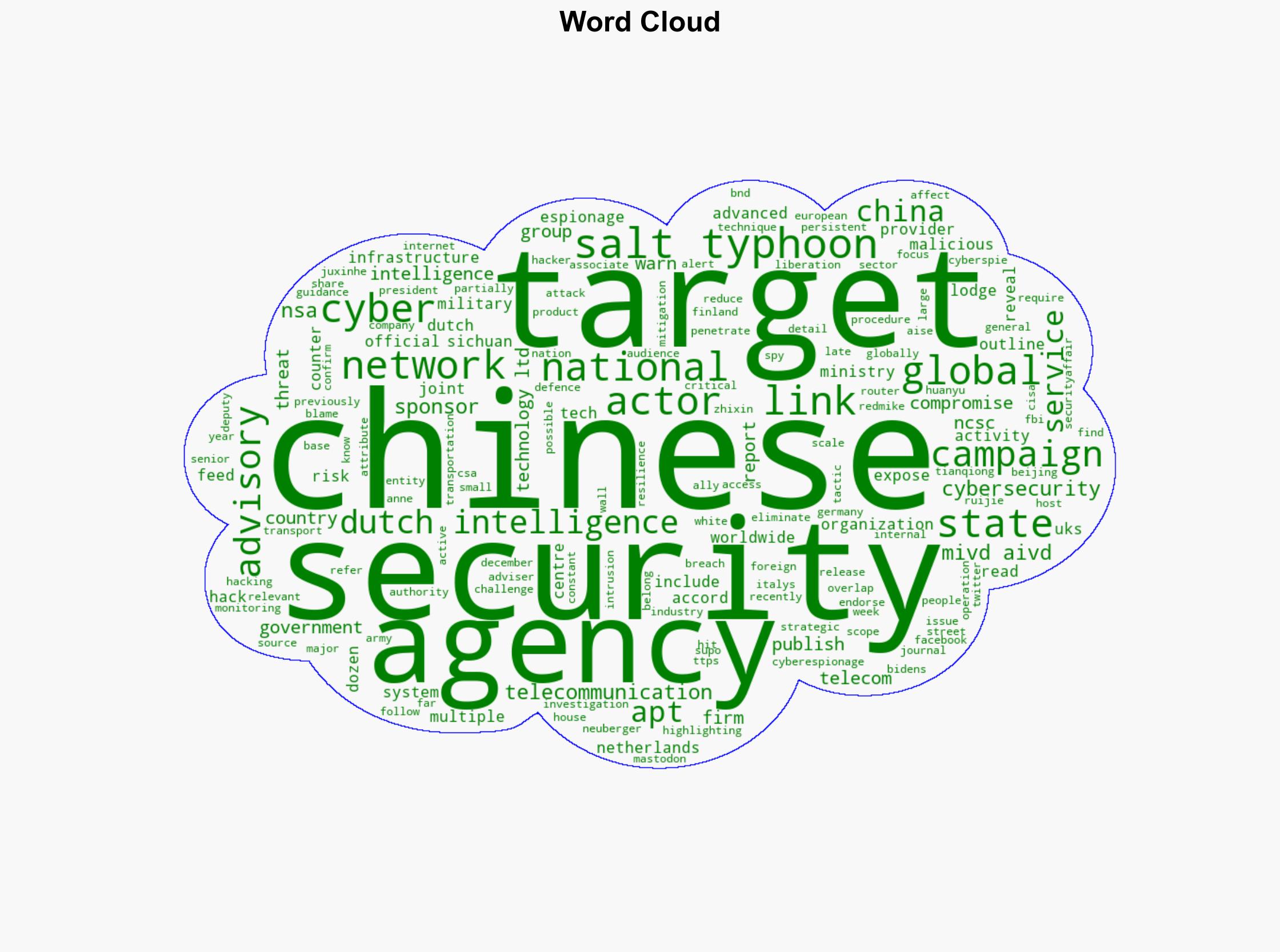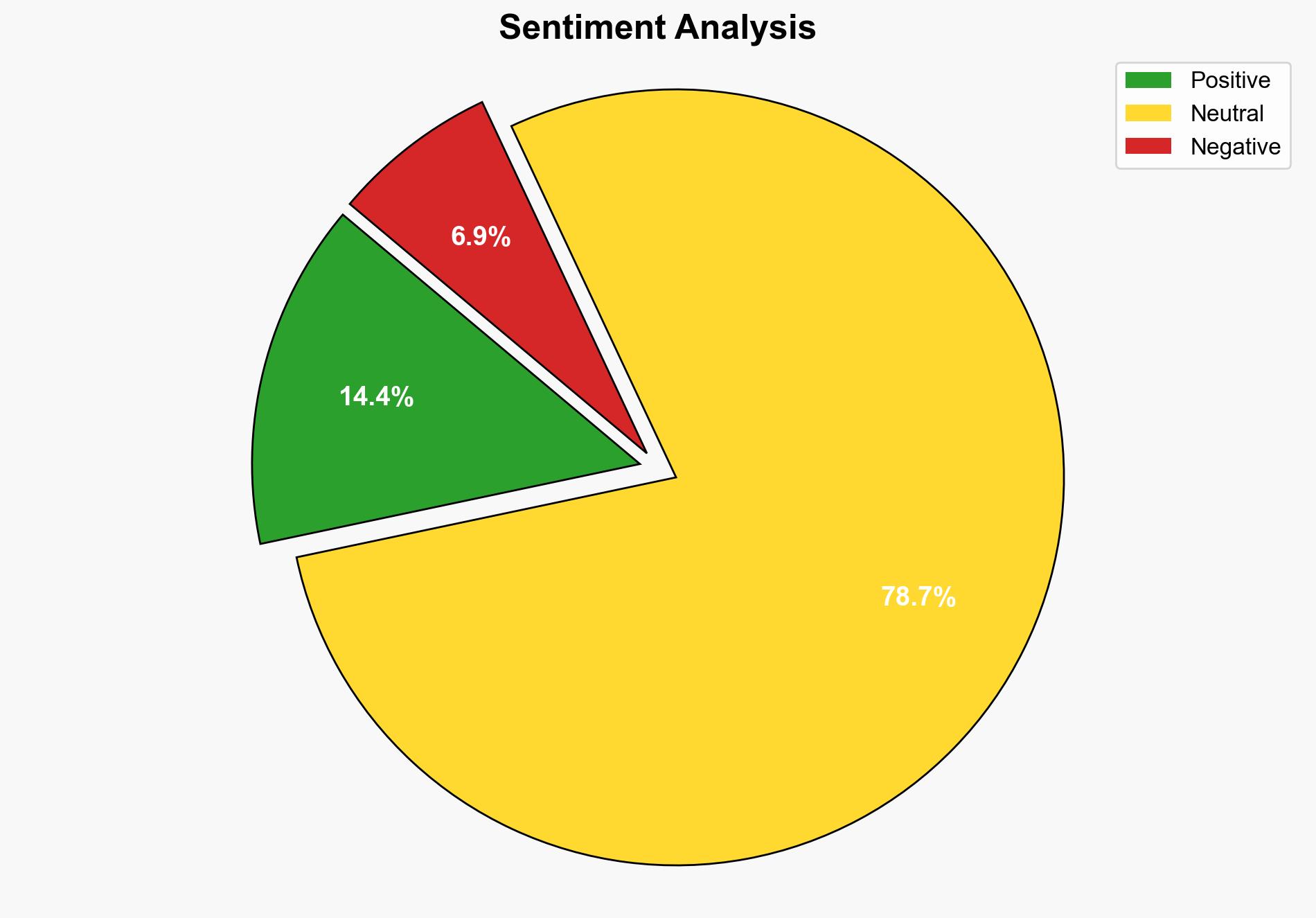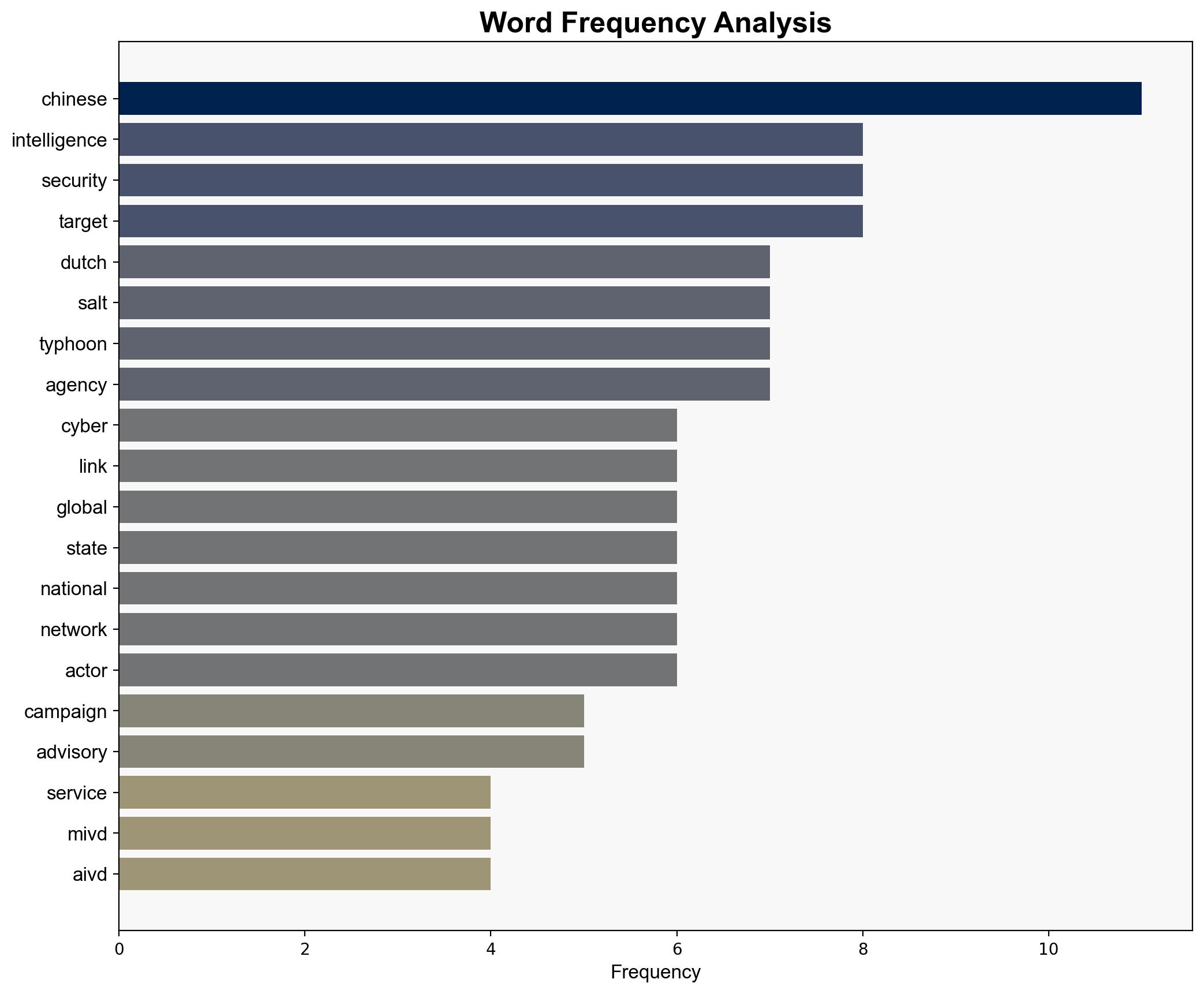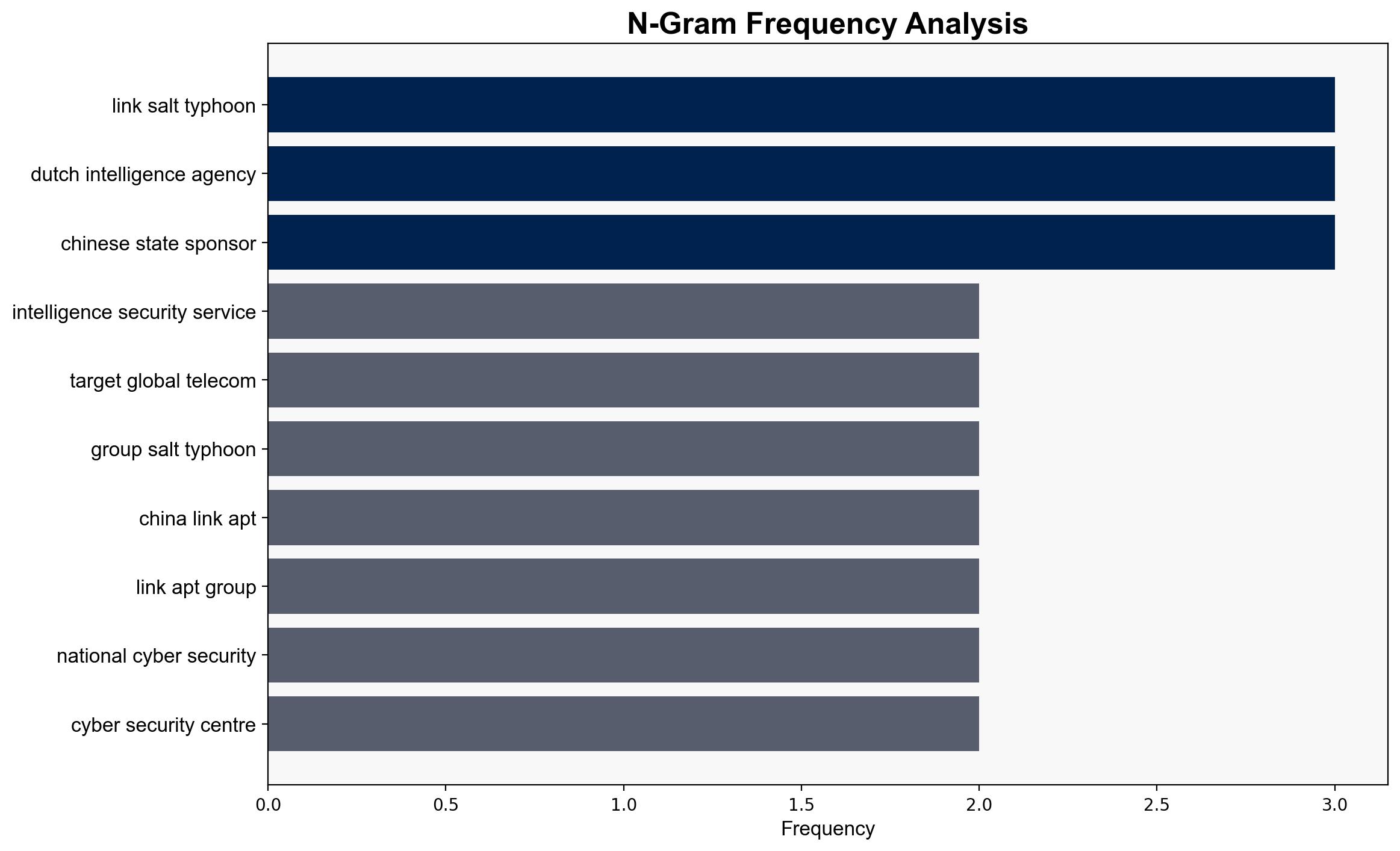Dutch intelligence warn that China-linked APT Salt Typhoon targeted local critical infrastructure – Securityaffairs.com
Published on: 2025-08-29
Intelligence Report: Dutch intelligence warn that China-linked APT Salt Typhoon targeted local critical infrastructure – Securityaffairs.com
1. BLUF (Bottom Line Up Front)
The most supported hypothesis is that the China-linked APT group Salt Typhoon is conducting a coordinated cyber-espionage campaign targeting critical infrastructure in the Netherlands and globally. This is supported by corroborative intelligence from multiple national security agencies. Confidence level: High. Recommended action: Strengthen international cybersecurity collaboration and enhance monitoring of critical infrastructure networks.
2. Competing Hypotheses
Hypothesis 1: Salt Typhoon is executing a state-sponsored cyber-espionage campaign targeting critical infrastructure globally, including the Netherlands, as part of a broader strategic initiative by China to enhance its intelligence capabilities.
Hypothesis 2: The cyber activities attributed to Salt Typhoon are the result of independent cybercriminal groups operating under the guise of state sponsorship, exploiting geopolitical tensions to mask their true intentions.
Using the Analysis of Competing Hypotheses (ACH) 2.0, Hypothesis 1 is better supported due to consistent reports from multiple intelligence agencies and the alignment of tactics, techniques, and procedures (TTPs) with known state-sponsored activities.
3. Key Assumptions and Red Flags
Assumptions for Hypothesis 1 include the belief that China has strategic interests in global telecommunications and critical infrastructure. A red flag is the potential for confirmation bias, as multiple agencies may share similar intelligence sources. For Hypothesis 2, the assumption is that cybercriminals possess the capability to mimic state-sponsored TTPs, which may be overestimated.
Inconsistent data include the lack of direct attribution evidence linking Salt Typhoon to the Chinese government, and missing data on the specific impact on Dutch infrastructure.
4. Implications and Strategic Risks
The campaign poses significant risks to national security, economic stability, and public trust in digital infrastructure. Escalation could lead to increased geopolitical tensions and retaliatory cyber operations. The economic impact could be severe if critical infrastructure is disrupted, affecting sectors like telecommunications, transportation, and government operations.
5. Recommendations and Outlook
- Enhance international cybersecurity cooperation and intelligence sharing, particularly with countries experiencing similar threats.
- Invest in advanced cybersecurity defenses and continuous monitoring for critical infrastructure networks.
- Scenario-based projections:
- Best Case: Strengthened defenses deter further attacks, and diplomatic engagement reduces tensions.
- Worst Case: Successful breaches lead to significant disruptions and geopolitical conflict.
- Most Likely: Continued cyber skirmishes with incremental improvements in defense capabilities.
6. Key Individuals and Entities
Anne Neuberger, President Biden’s Deputy National Security Adviser, is a key individual mentioned in the context of the U.S. response to the threat. Entities include the Dutch intelligence agencies MIVD and AIVD, and the Chinese tech firms linked to the campaign.
7. Thematic Tags
national security threats, cybersecurity, counter-terrorism, regional focus





